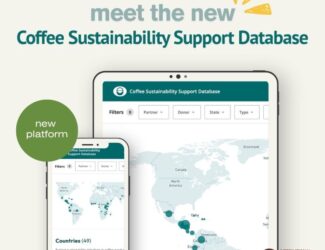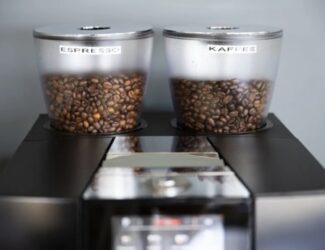
Growing Concerns Over Ownership of Coffee Varieties by Large Companies
In a recent development, Nestlé and Starbucks have introduced new coffee varieties, N°20 and six climate-resistant types, respectively. This has sparked discussions on whether companies should have intellectual property rights over specific coffee varieties, potentially leading to a monopoly and impacting farmers.
Nestlé’s N°20, developed over two decades, is exclusive to Nespresso capsules and currently grown solely in Colombia. Similarly, Starbucks unveiled climate-resistant varieties from its research center in Costa Rica, addressing challenges posed by diseases and climate change in the coffee industry.
While the creation of hybrid coffee varieties is not new, concerns arise when large companies fund and develop unique varieties independently. The question at the center of the debate is whether these companies can claim ownership through intellectual property rights.
The potential enforcement of intellectual property rights over coffee varieties raises concerns about creating a monopsony, a single-buyer condition. Farmers growing a coffee type with proprietary genetics might be obligated to sell exclusively to the owning company, diminishing their position in the supply chain. This could lead to legal and economic dependence on powerful entities, limiting farmers’ alternatives in terms of buyers.
Karl Wienhold, a researcher and consultant, emphasizes that private ownership of coffee varieties may grant companies complete control over the terms of trade, both upstream and downstream. This control could extend to limiting farmers’ alternatives in selling their harvest and establishing a monopoly in the market.
Drawing parallels with past cases, such as Monsanto’s patent claims over genetically engineered seeds, the concern is that legal ownership of coffee varieties could lead to conflicts between large companies and smallholder farmers. However, both Nestlé and Starbucks claim positive intentions. Starbucks asserts that their new varieties are freely available for global farmers, and Nestlé restricts the production of N°20 to its facilities, mitigating immediate legal concerns.
Despite these assurances, industry observers are wary of potential future issues, especially as climate change and supply shortages become more significant challenges in coffee production. The demand for genetically engineered climate-resistant varieties may increase, potentially leading to legal disputes akin to those seen in other agricultural sectors.
The debate over the ownership of coffee varieties by conglomerates prompts considerations of the greater good for the industry. While companies argue for the right to determine the use of their researched varieties, concerns linger about the impact on farmer wellbeing and the industry as a whole. The discussion underscores the delicate balance between protecting intellectual property and ensuring equitable benefits for all stakeholders in the coffee supply chain.



